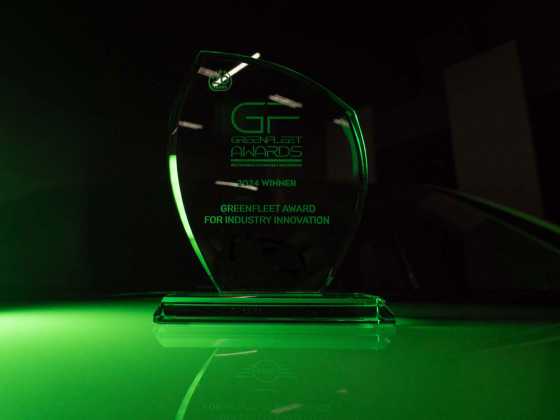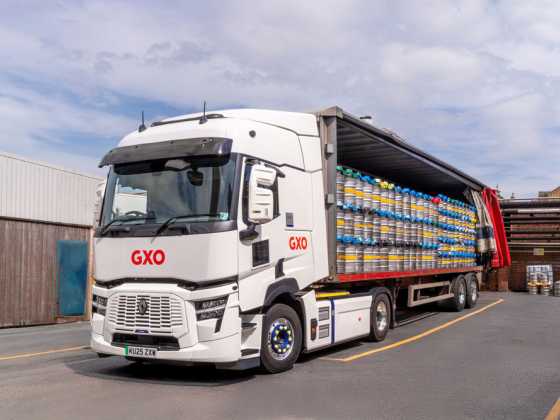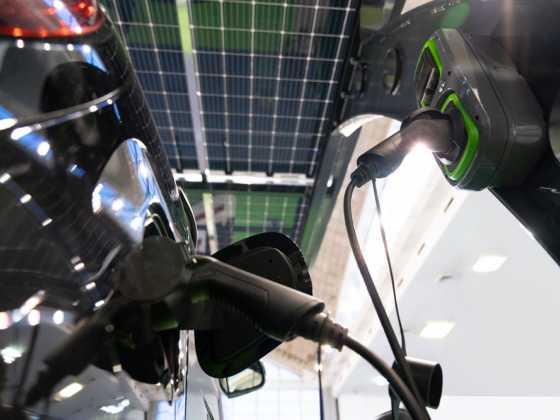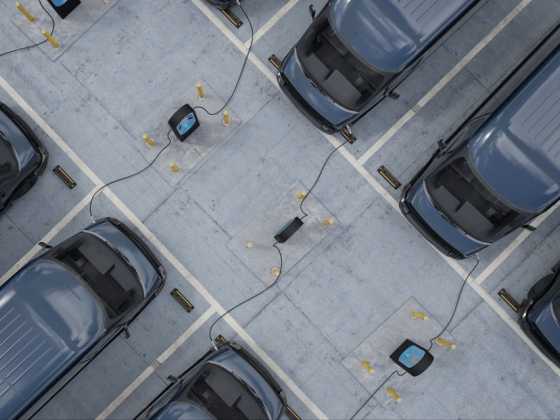The greener options for powering trucks
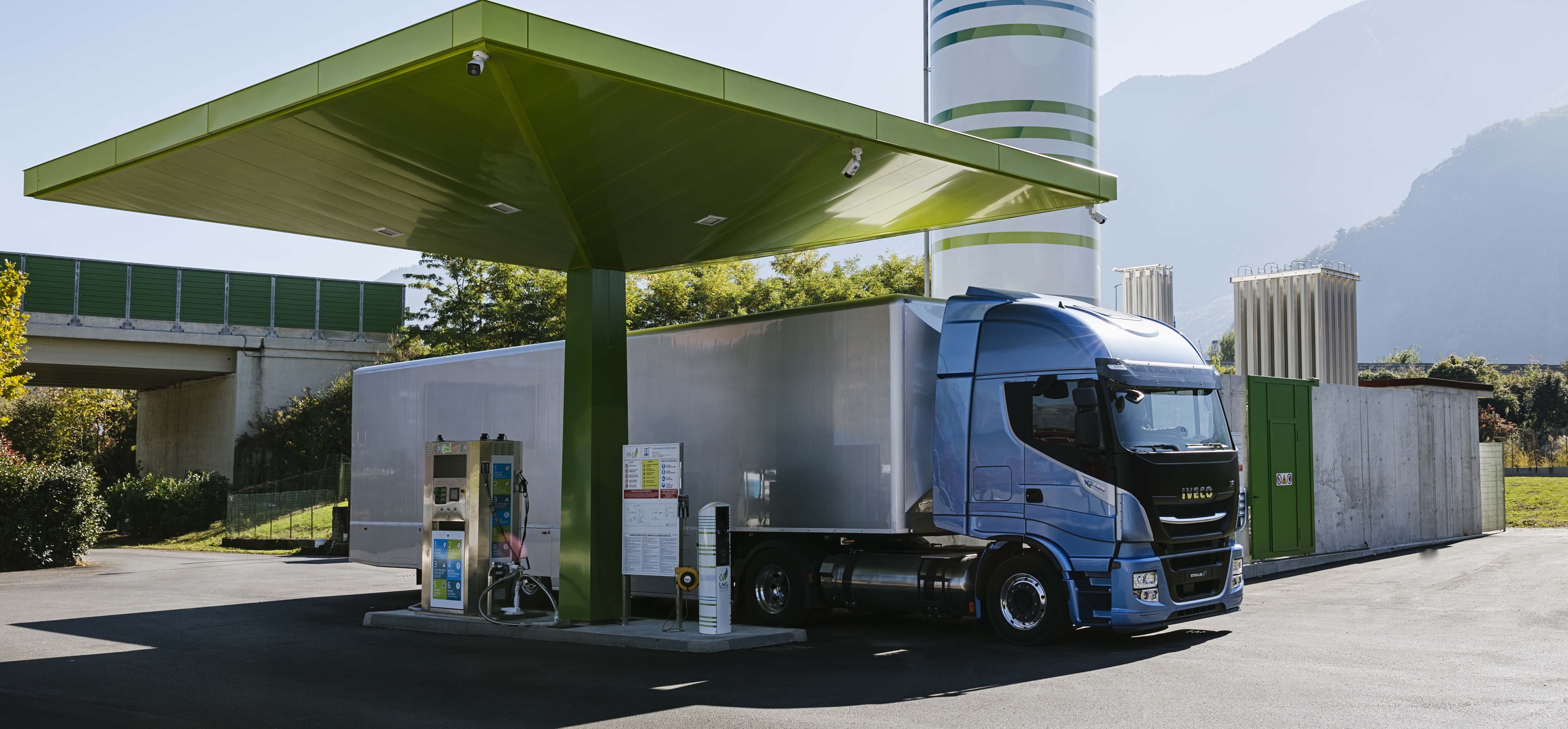
Uncertainty over air quality plans is putting a question mark over the future of diesel, especially for van and truck operators who rely heavily on the fuel. But interest in alternative fuels is huge and could see greener trucks entering the mainstream this year, according to commercial vehicle manufacturer Iveco. GreenFleet reports from the firm’s State of the Nation conference
Three in 10 operators are planning to consider alternative fuels as part of their vehicle purchasing in 2018, with a further 13.6 per cent undecided, according to last year’s Shell Rimula Truck Buyers’ Survey. The report says that if good intentions are converted into actual purchases in 2018, it will be a year of significant change for commercial fleets.
Speaking at the Iveco’s State of the Nation conference, managing director Stuart Webster said that the interest in alternative fuels for trucks is huge. He said: “Until now, it’s been the early adopters who’ve set the pace when it comes to alternative truck fuels. But we’ve had more and more serious enquiries from major operators to get into gas-powered vehicles. In 2018, we will see alternative fuels moving firmly into the mainstream.”
Iveco are steps ahead when it comes to offering commercial vehicles powered by alternative fuels, with a product line-up of electric vans and gas-powered trucks, as well as Euro 6 diesels.
Last spring, the company proved the viability of gas as a alternative to diesel for long-haul truck operations, with an Iveco Stralis NP completing the 837-mile journey from John O’Groats to Land’s End on a single fill of liquified natural gas (LNG).
Iveco’s commitment to finding a more sustainable way to fuel trucks and vans has led them to win GreenFleet’s LGV Manufacturer of the Year award two years running, as well as the coveted title of Leader in Low Emissions Vehicles at the Air Quality Awards.
Sutainable vehicles
This year, Iveco has enhanced its range of alternatively-fuelled vehicles.
Adding to the appeal of the gas-powered Stralis NP, which reached its 1,000 customer last year, the new Stralis NP 460 has increased horse power to better meet the needs of the long-haul market. The trucks can run on CNG, LNG, or a combination of both. The double LNG tank version has a range of up to 994 miles.
The trucks deliver up to 15 per cent less fuel consumption and up to nine per cent lower total-cost-of-ownership than a diesel truck. Noise is also reduced to less than 71 dB.
The Stralis NP 460 delivers a 99 per cent reduction of Particulate Matter and 60 per cent NOx reduction when compared to Euro 6 limits. When bio-methane is used, CO2 emissions are cut by 95 per cent.
Bio-methane also has the upper hand as it can be generated from sewage or waste, lessening our depency on fossil fuels. It can also be produced locally, which reduces the need for transporting energy.
The Stralis NP 460 is full of fuel-saving features, including a system to monitor and improve driving behaviour, speed and torque limiter, and low-rolling resistance eco-tyres. Companies also have access to Iveco’s fuel consultancy services. The truck also features Hi-Cruise drive system that includes GPS-based systems, such as predictive cruise control and gearshifting, to further its fuel efficiency.
Stralis X-WAY
Specifically designed for construction, waste, and forestry applications, the new Stralis X-WAY has off-road capabilities, fuel-efficiency and safety. It also has the biggest payload in its segment, with a kerb weight of 8,845 kg for the Super Loader.
The Stralis X-WAY can also be powered using natural gas, without compromising payload and performance. This is a benefit for construction logistics operations in urban centres, which may have restrictions on diesel vehicles and noise constraints.
The X-WAY's modular approach offers a choice of line-ups that can be tailored to match the exact requirements of every operation.
A daily dose of power

Also new to its new 2018 line-up, Iveco has launched the new Daily Blue Power range of vans, which Iveco’s Chris Read explains “will be spearheading our market attack in 2018”. Ideally suited to urban transport operators, the range is available with three power sources: natural gas, electric, or ‘Euro 6 RDE Ready’.
The Daily Hi-Matic Natural Power is the first compressed natural gas LCV with an 8-speed automatic gearbox in the industry. It delivers the performance and reliability that the Daily is know for, but adds more comfort and fuel economy, extra-low pollutants and CO2 emissions.
The Daily Hi-Matic Natural Power complies with Euro 6 diesel standards with 76 per cent less Particulate Matter and 12 per cent lower NOx emissions than Iveco’s Euro VI 3.0-litre diesel engine. CO2 emissions of the CNG engine are three per cent lower than those of the equivalent diesel version, in real driving conditions and in an urban context. The application of the Hi-Matic transmission to CNG further improves this performance, extending this gap to five per cent. If bio-methane is used to run the CNG engine, CO2 emissions can be very close to zero, with a 95 per cent reduction.
The Daily Hi-Matic Natural Power achieves a 2.5 per cent fuel saving, on real urban cycle, compared to the CNG manual version. Cheaper pump prices of CNG compared to diesel translates into very competitive cost per km. In fact, if all factors such as fuel price, engine efficiency and energy value are considered, natural gas can deliver cost savings in excess of up to 35 per cent compared to diesel, Iveco says.
Electric power
First launched in 2009, the Iveco Electric van has been through continuous upgrades and improvements over the years. 2018’s electric Daily has an extended range of up to 125 miles and its battery performance has been optimised for all weathers. The battery technology allows for a big payload, and in fast mode it only takes two hours to recharge. The Eco-Power driving mode and regenerative braking systems also enhance its efficiency.
Clean diesels
With all the anti-diesel sentiment in the headlines and in legislation, it is important to acknowledge that today’s diesels are cleaner than they have ever been. And because they are fuel-efficient, they are well suited to long-haul operations and contribute to lower CO2 levels and improving air quality. Stuart Webster commented: “Euro 6 diesel engines are exceptionally clean. Even the legislators acknowledge that Euro 6 diesels are clean enough to enter the most stringently controlled
Clean Air Zones.”
Iveco’s diesel Euro 6 RDE Ready Daily is the first LCV ready for 2020 real driving emissions regulations, three years ahead of the stringent environmental targets.
Stuart Webster comments: “Diesel will continue to play a central role in what transport operators do for many years to come. We need Euro 6 diesels for the good of the environment. We need the legislators to support that and be very clear in doing so.
"But we must also do everything we can to encourage the rapid up take of alternatives, because they undoubtedly are the future.”
Stuart Webster sums up the fuel market for commercial vehicles: “Until now, diesel has been the ‘one size fits all’ fuel for every one in road transport. Tomorrow, the right choice of fuel will depend very much on what you actually do.”



